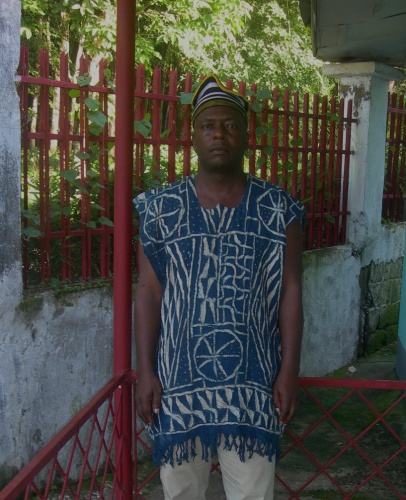Advantages
Socially: the program provides very entertaining and enriching alternatives to street gangs, drugs and prostitution. Read more
Economically: the program saves the city council huge amounts of money in terms of policing, drug, alcohol and other social rehabilitation programs and prison upkeep. Read more
Culturally: it enriches the city or country. Africa still remains a mystery to most people. Its culture is little known. Read more
Tourism: many cities and countries derive a huge chunk of their revenues from tourism. Read more
Health: the explosion of child obesity and other numerous health concerns tied to inactivity in North America provides a good reason for the introduction of these dances. Read more
Picture view
| ABOUT PETER TATAH NTAIMAH Peter Tatah Ntaimah is the overall musical director of the African Folk Dance Project. He grew up in Oku in Bui Division in the North West Province, a setting where some of Cameroon’s best cultural traditions have been preserved. He started playing the xylophones and drums as early as eight. As a youth, he had to go through the rigour of learning how to play these instruments that formed part of his traditional education. In the beginning, this exercise was more of a routine. A more practical use for his musical talents came up at an earlier stage in life when he spent long hours alone chasing away monkeys from his parents’ corn and peanut crops. Situated very deep in the Oku forest, these farms and their lonely and stressful environments provided him with an incentive to use his musical skills. He would play and sing all day long not only to keep animals away, but also to inject some life in the dull monotony of his environments. Out of this situation, he perfected his xylophone and drums playing skills and thus became a traditional musician. His apprenticeship went with singing. When he went to college, most of his musical abilities would find no outlet as cultural events were hardly organized by the administrative and school authorities. His form of music was depicted as primitive and satanic by children from the cities who had been brainwashed into thinking that music must be western to be considered as such. Such persecutions forced him into anonymity and never gave him any opportunity to display his musical skills. The fact that many of his colleagues were being baptised to become Christian, another symbol of the west, intensified the persecution and caused him to distance himself from traditional music even more. He enrolled into the University to study anthropology and this marked a turning point in his life. His studies exposed him to colonial falsehoods, especially in their portrayal of African culture. He could now make good judgement. It was here in Yaounde in the eighties and nineties that he began to put to good use the musical talents lying idle in him. He decided to join the Subi Yaounde dance troupe (Bum). In this troupe, he perfected his abilities to play the xylophones, drums, and the local flute. Ever since, music has become part of his daily activities. He has travelled to many African and European countries as a traditional musician. He holds that without traditional music, his life would be incomplete. |

|
